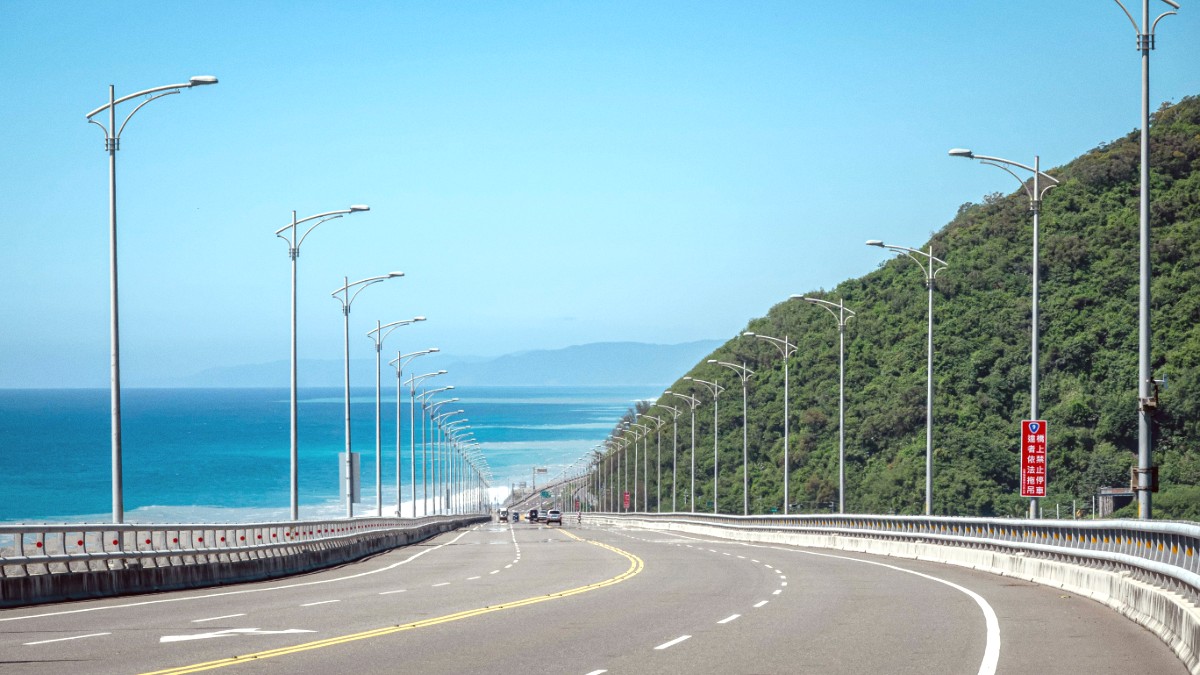
East Coast, Taiwan
High Season (October-April): This period functions as the peak tourist season in Taitung. The weather remains cooler and drier, making it suitable for hiking, cycling, and general outdoor activities. Typhoon risk stays low, which results in stable travel conditions. Clear skies offer better views for photography. Expect higher prices for accommodation and flights. Popular attractions and transportation, especially trains, will have more crowds. Major holidays like Lunar New Year (late January or February) and 228 Peace Memorial Day (February 28) see a surge in domestic tourism, leading to higher demand and prices. Book everything well in advance during these times.
Shoulder Season (May-June, September): These months bring a balance between weather and crowd levels. Weather conditions are often favorable, and fewer crowds exist compared to the high season, creating a relaxed experience. Prices for accommodation and tours may be lower than in peak times. May and June mark the beginning of the rainier season, and September may still experience typhoons, which calls for vigilance regarding weather forecasts. Humidity begins to rise.
Low Season (July-August): This period marks the hottest and wettest time of year. Lowest prices for accommodation are present, and fewer tourists, except for major festivals. Heat and humidity are intense. A high chance of typhoons and heavy rain exists, which may lead to flight and ferry cancellations, and possible disruptions to land travel due to landslides or flooding. Plan activities with indoor alternatives.
Special Weather Considerations: Typhoon season runs from July to September, with possible occurrences from May to November. Strong typhoons cause significant disruptions. Monitor local weather advisories from the Central Weather Administration (CWA). Rainfall highs appear from May through August. Summer months contain high temperatures and humidity.
Risk of strong winds, heavy rain, travel disruptions.
Flight/ferry cancellations, road closures possible.
Monitor CWA advisories. Maintain itinerary flexibility.
Highest amounts due to monsoon and typhoons.
Days may have sun, but sudden, intense downpours are common.
Carry rain protection. Indoor alternatives for activities are useful.
High temperatures and humidity exist.
Prolonged outdoor activity presents challenges. Hydration is .
Sun protection measures are important.
The cooler, drier months from October to April offer the best conditions for exploring Taitung's trails and cycling paths. Air clarity exists, and physical exertion holds more manageability.
Warmer water temperatures from May to October make this period suitable for swimming, surfing, and snorkeling. Always exercise caution and check conditions, especially during typhoon season. Coastal activities are not advisable if a typhoon approaches or has recently passed.
Occurs from July to August at Luye Gaotai.
This event falls within the low season, with intense heat and potential for rain.
A significant draw, attracting global visitors to colorful balloons.
Plan attendance carefully. Accommodation bookings well in advance are advisable.
Travel to Taitung means entry requirements for Taiwan. Rules vary by nationality, so checking specific rules holds importance. The Bureau of Consular Affairs (BOCA) of the Republic of China (Taiwan) official website provides the most current information.
Citizens of many countries qualify for visa-exempt entry for short stays (USA, Canada, UK, EU, Australia, New Zealand, Japan, South Korea). These travelers enter Taiwan for tourism or business without advance visa application. Permitted stay duration varies, commonly 90 days, some nationalities 30 days.
Citizens of countries not on the visa-exempt list must apply for a visa before Taiwan travel. This application occurs at a Republic of China (Taiwan) embassy, consulate, or representative office in your home country or residence country. The visa type depends on travel purpose.
When traveling to Taiwan, having certain documents ready holds importance. A valid passport, confirmed onward or return tickets, and proof of sufficient funds (rarely requested) form part of general travel preparation.
Taiwan presents good travel value. Costs have variations based on travel style.
The official currency is the New Taiwan Dollar (NTD), also known as TWD or NT$. Its ISO code is 901. The exchange rate fluctuates; it generally exists around 30-32 NTD to 1 US dollar. Current rates are advisable for checking before your trip.
Automated Teller Machines (ATMs) exist widely across Taitung City and most major towns. Banks in Taitung City supply currency exchange services, with passport presentation for transactions. Airport exchange counters at TPE are available upon arrival for initial cash. Credit cards (Visa, MasterCard, JCB) gain wide acceptance in larger establishments. Smaller local eateries, night markets, and independent shops often accept or prefer cash. Carrying a good amount of cash for daily expenses is advisable.
Night markets and small local eateries offer delicious, authentic Taiwanese food at low prices.
Buses exist as a budget-friendly way to travel. Scooter rental presents a cost-effective option for wider exploration.
Many natural sites (beaches, parks, scenic viewpoints) exist for free entry. Focus on these for savings.
Staying in a Minshu (local B&B) holds value. They are generally more affordable than hotels, with a personalized Taiwanese experience.
Carry smaller NTD denominations (NT$100, NT$500) for local shop and night market purchases.
Taitung, and Taiwan generally, exist as a very safe destination for travelers. Healthcare standards are high. This section outlines considerations before and during your visit.
Mosquito-borne diseases like Dengue fever and Japanese Encephalitis are present, especially in summer months and rural areas. Taitung may experience intense sun, especially from May to October. Minor stomach upsets may occur.
Taiwan boasts a modern, high-quality healthcare system. Taitung City has reputable hospitals. Pharmacies exist widely. Tap water in Taiwan is generally not safe for direct drinking without boiling or filtering. Food hygiene standards are generally high.
Taiwan sits in an active seismic zone; minor earthquakes are common. Larger earthquakes are rare. Typhoons pose a risk from July to September. These cause significant disruptions. Following local government advisories is important.